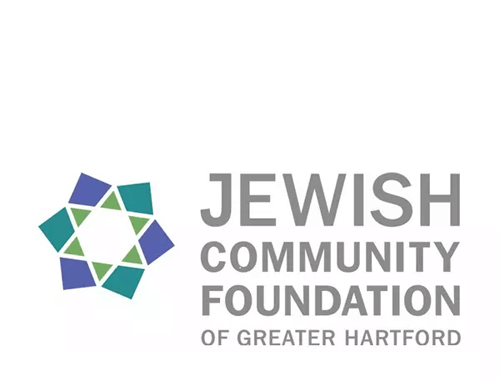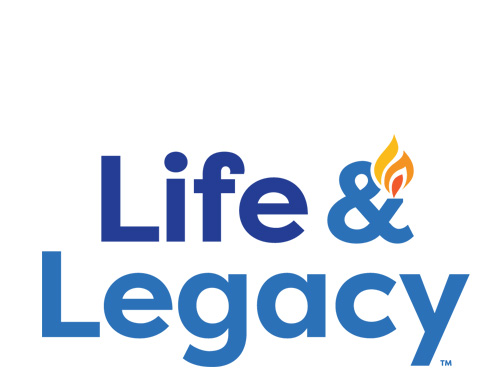Schechter Shavua: February 10, 2023
Understanding Jewish Traditions in Ghana
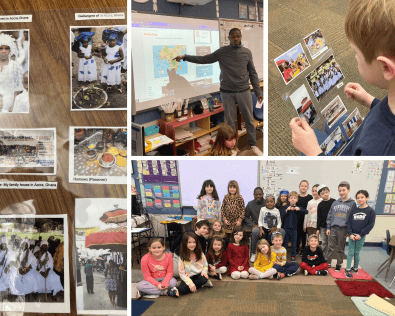 Anafimclass (grades 1-2) had a tremendous learning opportunity when Alfred Ashie, Eli’s father, discussed Jewish life and culture in Ghana. Mr. Ashie is from Accra, the capital of Ghana, and comes from the GaDangme people, who trace their roots back to Israel and the tribes of Gad and Dan. We looked at the route the GaDangme took from Israel and the countries they stopped at on their way to Ghana.
Anafimclass (grades 1-2) had a tremendous learning opportunity when Alfred Ashie, Eli’s father, discussed Jewish life and culture in Ghana. Mr. Ashie is from Accra, the capital of Ghana, and comes from the GaDangme people, who trace their roots back to Israel and the tribes of Gad and Dan. We looked at the route the GaDangme took from Israel and the countries they stopped at on their way to Ghana.
Students learned that the GaDangme celebrate three main feasts that correlate with Passover, Shavuot and Sukkot. They were especially fascinated to learn details about celebrating the feast of Homowo (Passover) in Accra and the special foods prepared for the holiday. Mr. Ashie also brought photographs portraying the GaDangme’s rich culture and beautiful ceremonial clothing worn to special events. Todah rabah, Mr. Ashie!
Students and Parents Create Special Tallitot
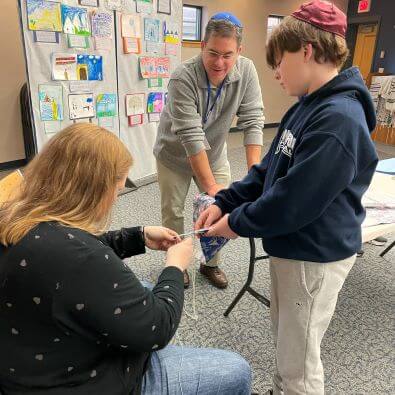 Archeology. Tefillah . Economics. Torah. Connection to family. Connection to God. What learning topic checks all those boxes? Our sixth grade Tallit unit! They studied the history of tekhelet —the rare, ancient blue dye that disappeared from the world for almost 2,000 years before being resurrected in Israel. They learned about the meaning and purpose of tallit (the rectangular cloth worn during morning services) and tzitzit (the fringes tied to the corners of the tallit ). And then, with their parents’ help, they tied tzitzit onto their own tallit that they had helped to craft! Each student will wear their homemade tallit during regular tefillahat school, and we hope that they enjoy their new creations for years to come.
Archeology. Tefillah . Economics. Torah. Connection to family. Connection to God. What learning topic checks all those boxes? Our sixth grade Tallit unit! They studied the history of tekhelet —the rare, ancient blue dye that disappeared from the world for almost 2,000 years before being resurrected in Israel. They learned about the meaning and purpose of tallit (the rectangular cloth worn during morning services) and tzitzit (the fringes tied to the corners of the tallit ). And then, with their parents’ help, they tied tzitzit onto their own tallit that they had helped to craft! Each student will wear their homemade tallit during regular tefillahat school, and we hope that they enjoy their new creations for years to come.
Special thanks, also, to Schechter alumni parent Elizabeth Ehrlich for helping to affix the beautiful blessing on the atara (neck piece) to each student’s tallit.
Click HEREto see photos of the tallit-making process.
Mixed K-8 Groups Add to the Tu Bishvat Excitement
Holidays are always more fun and special when shared with friends, and Tu Bishvat was no exception this week. Students gathered in their mixed age Shevet groups (K- 8) to practice Hebrew vocabulary related to trees, discuss why trees are important, then work collaboratively to create their own trees made from recycled materials. Students incorporated important practices like discussing and planning their design details in advance and working together to complete the project. Test your Hebrew vocabulary: what do these words mean?
עֵץ (etz)
שורשים (shorashim)
עָלִים (alim)
ענפים (anafim)
Click HEREto see photos of our Tu Bishvat multiage fun!
More Dancing Fun at ReLiSh!
Schechter students have a blast when Sarah Montag teaches them Israeli dancing! Last week, they learned the moves to "Hamishpacha Sheli" (My Family) and we can't wait to add this dance to our Friday ReLiSh rotation!
Watch a VIDEOof some Israeli dancing!
Hallel Helps Students Make Connections to other Prayers
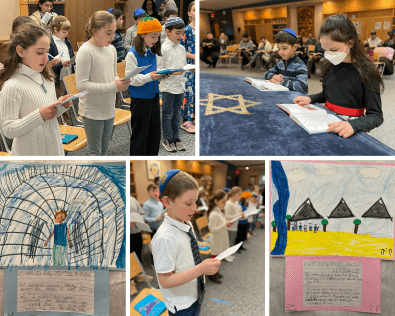 Alim students (gr. 3-4) led Hallel at a recent the Rosh H odesh service (held at the beginning of each Jewish month). Hallel, a collection of psalms focused on gratitude, is sung during services on multiple holidays, at the Pesach Seder, and on every Rosh Hodesh.
Alim students (gr. 3-4) led Hallel at a recent the Rosh H odesh service (held at the beginning of each Jewish month). Hallel, a collection of psalms focused on gratitude, is sung during services on multiple holidays, at the Pesach Seder, and on every Rosh Hodesh.
The Rosh Hodesh Hallel unit, taught by Rabbi Berger, is a new program introduced to our third and fourth graders this year. Each week Rabbi Berger joined the Alim class to introduce new sections of the Hallel psalms. Inevitably, the curious students would make connections to other prayers during their in-depth discussions about the interpretation of key words in Hebrew.
See a video clip of students davening Hallel HERE.
Parashat Yitro—What’s the Purpose of School?
 What’s the purpose of school? To some, school is purely about putting students on the path to a good job. To others, the goal is to create good citizens, or to learn how to think, or to be part of the Western (and/or Jewish) intellectual and cultural tradition. Our parashah offers another powerful answer: the purpose of education is to empower.
What’s the purpose of school? To some, school is purely about putting students on the path to a good job. To others, the goal is to create good citizens, or to learn how to think, or to be part of the Western (and/or Jewish) intellectual and cultural tradition. Our parashah offers another powerful answer: the purpose of education is to empower.
The first part of the parashah describes the extended encounter between Moshe and his father-in-law, Yitro, soon after the Israelites left Egypt. The day after Yitro arrives, he comes to observe Moshe in action, and sees him working from dawn until dusk, with the people crowded around him all day long.
At the end of the day, Yitro asks Moshe why he spends so much time sitting in judgment. Moshe responds that the people all come to him with their disputes, so he issues judgments and teaches them laws—what else can he do? Yitro then makes two suggestions. Most readers focus on the second suggestion, in which he tells Moshe to set up a hierarchical system of judges so that only the toughest cases come to him. For good reason, we still talk about this a lot today: every leader, even Moses, needs to delegate.
But before he talks about delegating, Yitro says something else that I never noticed until recently. As the commentary of Avraham ibn Ezra points out, Moshe explained that he would first settle a dispute, and then teach them the relevant law. Yitro reverses the order, and says, “Teach them first, and then issue your ruling!” In doing so, says ibn Ezra , Moshe will end up teaching big principles first, and then individual laws. First would come core concepts like loving and revering God, not being arrogant, not holding grudges — and then the individual mitzvot. Both general and specific are important, but to Yitro, the broader vision comes first, and then the specifics.
The purpose of this kind of education is empowerment. By learning the principles and the laws, the people will become more independent. They won’t need Moshe to settle each dispute; they will be better able to make choices, manage conflicts, and live as God intended.
Empowerment is a big goal of our work at Schechter, because as parents and as educators, we too want our children to manage conflicts, make good choices, and live by principles and values. May all of our children grow to be empowered, independent, and rooted in the Torah’s values and mitzvot!
Shabbat shalom,
Rabbi Jonathan Berger
Head of School
Questions for the Shabbat table:
1. Why do you think Moshe didn’t see the importance of delegating on his own; why did he need someone else to point it out?
2. How has education empowered you?
Solomon Schechter Day School
of Greater Hartford
26 Buena Vista Road
West Hartford, CT 06107
© Solomon Schechter Day School of Greater Hartford | Site design Knowles Kreative

